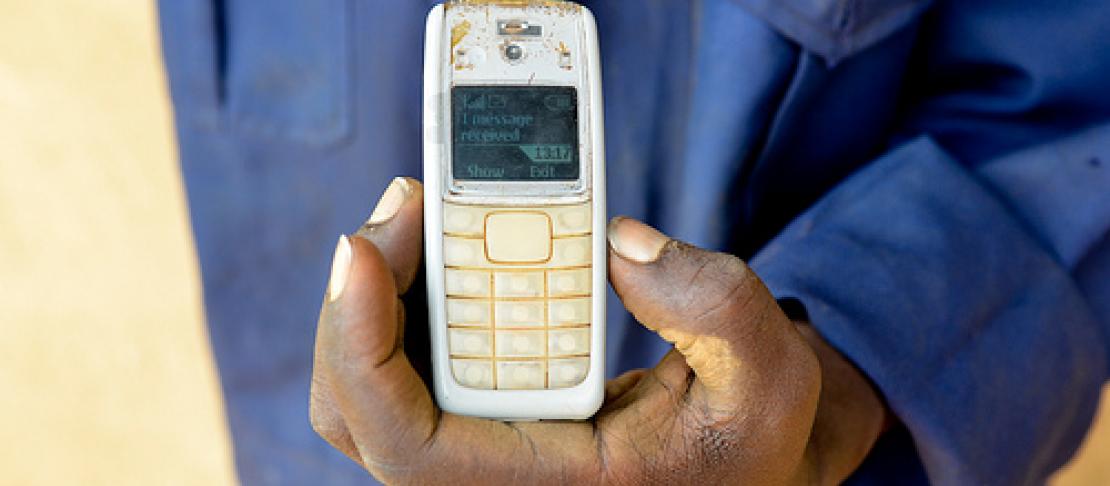Better climate services ‘good news’ for farmers

by Vanessa Meadu
Climate services – that is, the provision of accurate and locally-appropriate climate and weather information – are a vital building block for increasing the resilience of communities to climate change, diseases, and disasters. But many countries lack the capacity to make the necessary predictions, let alone supply this information to decision makers and communities. A new initiative, the Global Framework for Climate Services (GFCS), is working to enhance the capability of many countries to provide these services, so that they can adequately plan for the future. But information supply is not enough; information needs to suit users’ needs and communities need resources to act on the information they receive.
Members of the GFCS, including World Health Organisation (WHO), World Food Programme (WFP), UN Food and Agriculture Organisation (FAO), the World Bank, the International Federation for the Red Cross, and the United Nations Office for Disaster Risk Reduction (UNIDSR) shared their experiences with delegates at the Rio+20 Conference with insights on how climate information can support risk mapping, early warning systems, and long-term risk management strategies.
“Seventy countries on earth do not have functioning meteorological or climatological capacity to receive and absorb info and inform their constituencies” said Jan Egeland, Europe Director and Deputy-Executive Director of Human Rights Watch, who also co-chairs the High-level Taskforce on GFCS. “This is a human rights issue,” he stressed. Recent surveys by the CGIAR Research Program on Climate Change, Agriculture and Food Security (CCAFS) in East and West Africa also found that current services are failing to address farmers’ needs.
Information needs to be useful
Typically, "those who know what will happen (scientists) don't know what the users need, and users don't know what info can be made available,” said Egeland. The GFCS puts users' needs at the heart of information provision, and will empower more communities to develop early warning systems and adaptation strategies.
In terms of agriculture and food security it is vital that farmers are advised when and what to plant and when and what to harvest. Indeed, getting these services up and running is an essential component of climate adaptation. Examples of successful climate services to improve food security include India’s mobile phone system that puts market data and weather forecasts in farmers’ hands.
Watch: Robert Zougmoré, West Africa Regional Program Leader for CCAFS, speaks about the climate-related challenges farmers in West Africa face, and how forecasts and other types of information can improve decision-making.
Eliminating jargon, building trust and capacity
Elina Palm of UNISDR highlighted the need to translate forecasts into language that people can practically use (see related story: Local communities need alerts, not jargon), but also that a significant level of trust and understanding needs to be established between information providers and the communities that use the information, and communities must also be empowered to put the information into use.
"Many people who understand the forecasts don't trust them,” she said. “Many people who understand and trust the forecasts, don't know what to do with them. And many people who understand and trust the forecasts, and know what to do, don't have the resources to act.”
Ultimately, the GFCS is "good news" for many climate vulnerable communities around the world, and is essential for achieving sustainable development. Countries taking part in the Rio+20 process can support these kinds of initiatives through funds for research and extension, and a general recognition that communities’ needs must be at the core of sustainability planning.
Related publications:
Working Papers
The State of Climate Information Services for Agriculture and Food Security in East African Countries (PDF) by Mohammed Kadi, Leonard Njogu Njau, John Mwikya, Andre Kamga
The State of Climate Information Services for Agriculture and Food Security in West African Countries (PDF) by Mohammed Kadi, Leonard Njogu Njau, John Mwikya, Andre Kamga
Policy Brief
Agro-climate tools for a new climate-smart agriculture (PDF) by James Hansen and Kevin Coffey
The CGIAR Research Program on Climate Change, Agriculture and Food Security (CCAFS) is covering the Rio+20 Conference live between 12 - 22 June. Read the latest stories related to agriculture and food security from the conference. To get the latest updates follow both CCAFS on Facebook and Twitter and Agriculture Day Facebook and Twitter. Join the conversation about agriculture and food security during at Rio+20 using #Rio4ag on Twitter.
Vanessa Meadu is the communications manager for CCAFS.


